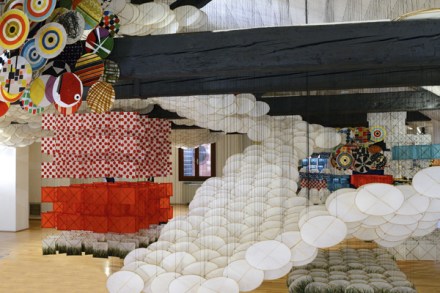Hollywood and oligarchs descend on Art Basel
The art world has descended on the almost attractive city of Basel in Switzerland this week, for the annual art fair. And where the art world goes, glamorous collectors follow. Leonardo di Caprio appeared to be in the mood for some serious shopping when I glimpsed him, casting his eye over a Warhol or two. He may have looked at the Alexander Calder, or perhaps he saw the Edmund de Waal or the exquisite pair of Peter Doig etchings. And there’s this chap called Picasso; mark my words, dear readers, he’s going to be big. Di Caprio had competition from one Roman Abramovitch, who sloped by a few Edvard Munchs,
















